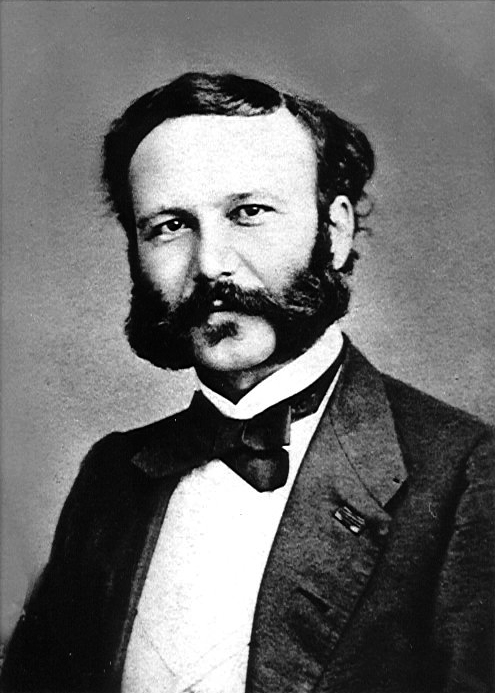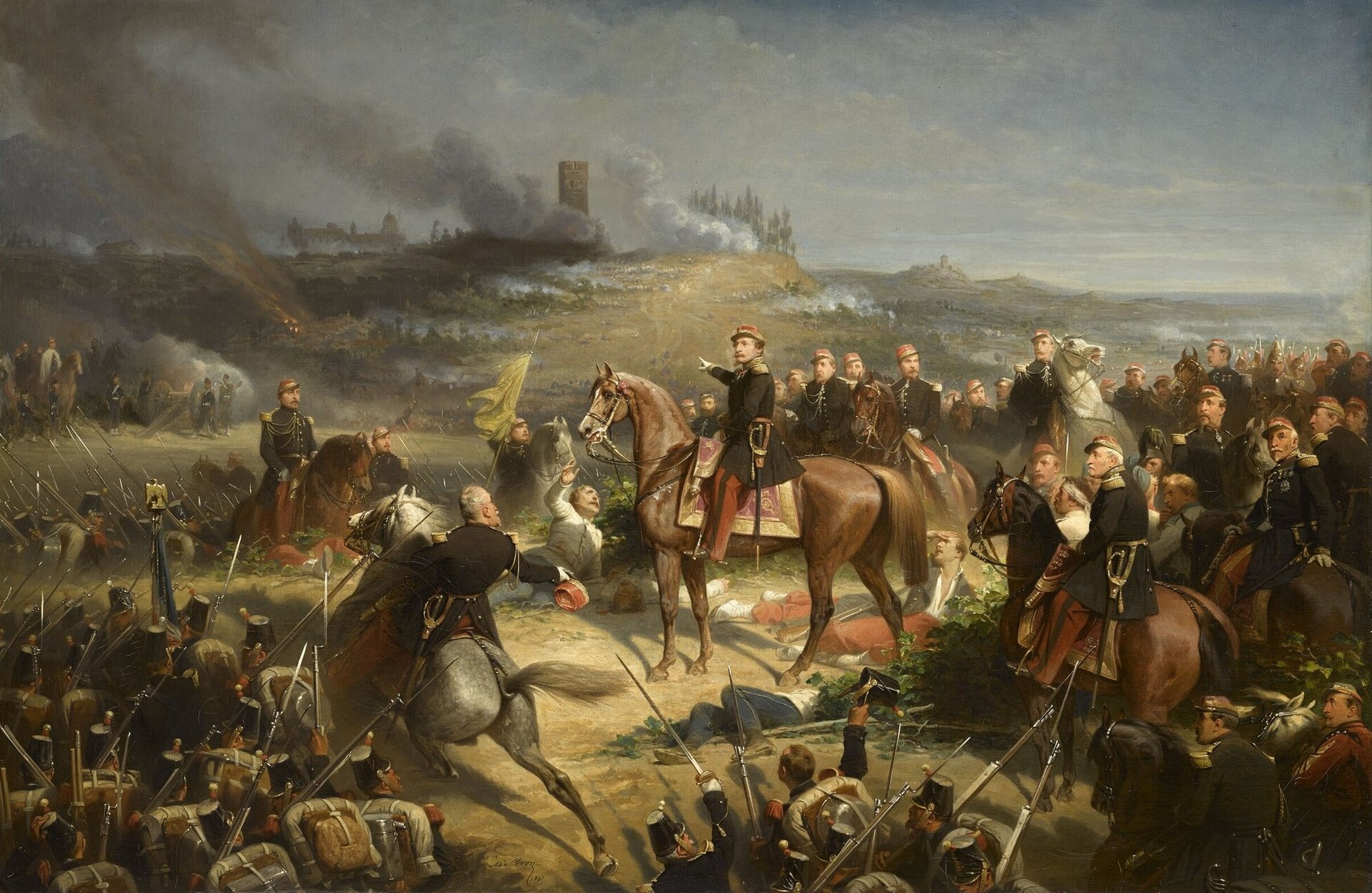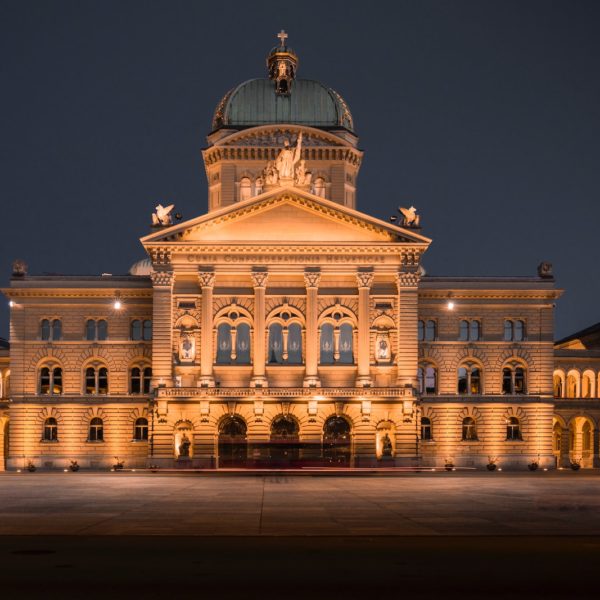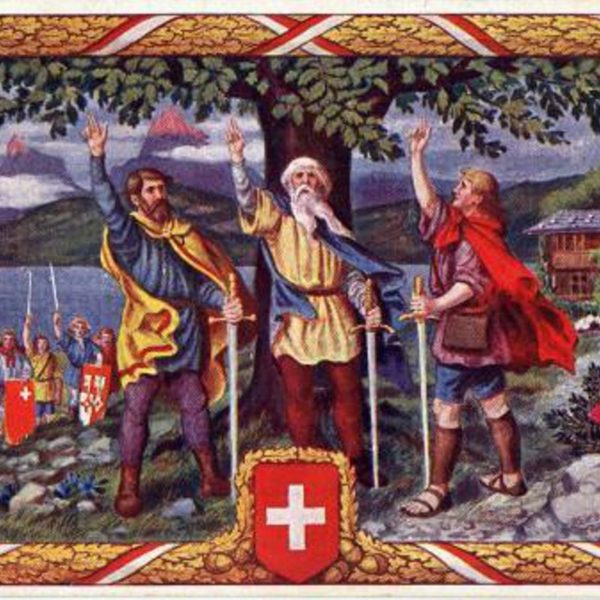Henry Dunant: The Compassionate Visionary Behind the Red Cross Movement
Henry Dunant, a name synonymous with humanitarianism, revolutionized the world’s approach to crisis response and laid the foundation for modern international humanitarian law. Born in Geneva, Switzerland, on May 8, 1828, Dunant grew up in a time of significant social and political upheaval. His early life was marked by a deep Christian faith, which profoundly influenced his later humanitarian endeavors.

Henry Dunant (1828–1910), Swiss philanthropist and co-founder of the International Committee of the Red Cross; Nobel Peace Prize laureate 1901
Dunant’s journey towards becoming the founder of the Red Cross Movement and a Nobel Peace Prize laureate was not just a tale of compassion but also one of resilience and vision. His experiences, particularly the harrowing sights at the Battle of Solferino in 1859, served as the catalyst for his life’s work. This experience was the genesis of his seminal work, “A Memory of Solferino,” which not only vividly described the horrors of war but also proposed a revolutionary idea: the formation of national societies to provide care for the wounded in times of war, irrespective of their side in the conflict.
Early Life and Career
Birth and Family Background
Born into a wealthy Geneva family, Dunant was exposed to philanthropy and social activism from a young age. His parents were active social reformers, which played a pivotal role in shaping his humanitarian outlook.
Education and Early Influences
Dunant received a comprehensive education, focusing on business and religious studies. His involvement in the Geneva Society for Alms and the Young Men’s Christian Association (YMCA) furthered his exposure to social issues and religiously motivated social service.
The Solferino Turning Point
The Battle of Solferino
In June 1859, Dunant traveled to Solferino, Italy, where he witnessed the aftermath of a brutal battle between the Austrian Empire and Franco-Sardinian alliance. The sight of 40,000 soldiers, either dead or dying without adequate medical care, left a profound impact on him.
The Battle of Solferino, occurring on June 24, 1859, marked a pivotal moment in the life of Henry Dunant and the history of humanitarian aid. This battle, fought between the Franco-Sardinian Alliance and the Austrian Army, was significant for being the last major confrontation where monarchs personally commanded their armies. It involved around 300,000 soldiers, resulting in a vast number of casualties with approximately 40,000 French, Sardinian, and Austrian soldiers left dead or wounded on the battlefield, receiving no medical care.

Compiègne, France: Château de Compiègne – Musée du Second Empire – Adolphe Yvon: Bataille de Solférino
Henry Dunant happened to be traveling through the area on a business trip during the conflict. Witnessing the aftermath of the Battle of Solferino left an indelible mark on him. He was deeply moved by the sight of thousands of wounded soldiers suffering without adequate medical assistance. This experience led him to take immediate action. Dunant mobilized the local populace of the village of Castiglione, near the battlefield, to provide care to the injured soldiers, regardless of their national affiliation, under the motto “Siamo tutti fratelli” (We are all brothers).
The Battle of Solferino thus stands as a key event not only in military history but also in the history of humanitarian aid. It was the grim reality of this battle and Dunant’s subsequent actions and advocacy that catalyzed the development of significant international humanitarian initiatives and organizations.
“A Memory of Solferino” and Its Impact
Dunant’s experiences at Solferino were transformative. He dedicated the next two years to writing a book titled “A Memory of Solferino,” published in 1862. This book, which vividly depicted the horrors of the battlefield and the plight of wounded soldiers, circulated widely across Europe. It proposed two revolutionary ideas: the concept of neutral and protected status for wounded soldiers and the establishment of private aid organizations to offer humanitarian assistance during conflicts. Dunant’s ideas were instrumental in the formation of the International Committee of the Red Cross (ICRC) in 1863, followed by the Geneva Conventions in 1864, laying the groundwork for modern international humanitarian law and the global movement of the Red Cross and Red Crescent societies.
The Formation of the Red Cross
Establishing the International Committee for Relief to the Wounded
Dunant’s vision materialized in February 1863, leading to the formation of this committee, later known as the International Committee of the Red Cross (ICRC).
The First Geneva Convention
In 1864, the first Geneva Convention was adopted, largely due to Dunant’s advocacy. It marked the beginning of international humanitarian law, setting standards for the humane treatment of war wounded.
Later Life and Legacy
Personal Challenges and Recognition
Despite his significant contributions, Dunant faced financial ruin and personal challenges, living in relative obscurity for many years. However, his efforts were eventually recognized, leading to him being co-recipient of the first Nobel Peace Prize in 1901.
The Enduring Impact of His Work
Dunant’s legacy extends beyond the Red Cross. He influenced the Geneva Conventions’ expansion and the formation of numerous humanitarian organizations worldwide.
Henry Dunant’s life and work stand as a testament to the power of compassion and the impact of visionary ideas. His establishment of the Red Cross and role in developing international humanitarian law have left an indelible mark on global society.
Henry Dunand
PROS
- Pioneered the international humanitarian movement.
- Established the principles of neutrality and impartiality in humanitarian aid.
- Inspired the Geneva Conventions, forming the basis of modern international humanitarian law.
- His vision led to the formation of the Red Cross, a major global humanitarian organization.
- Received the Nobel Peace Prize, highlighting the importance of humanitarian work.
CONS
- Faced personal financial ruin, reflecting the challenges of balancing humanitarian work with personal life.
- Lived in obscurity for a significant part of his life, with delayed recognition for his contributions.
- His ideas were initially met with resistance and skepticism.



